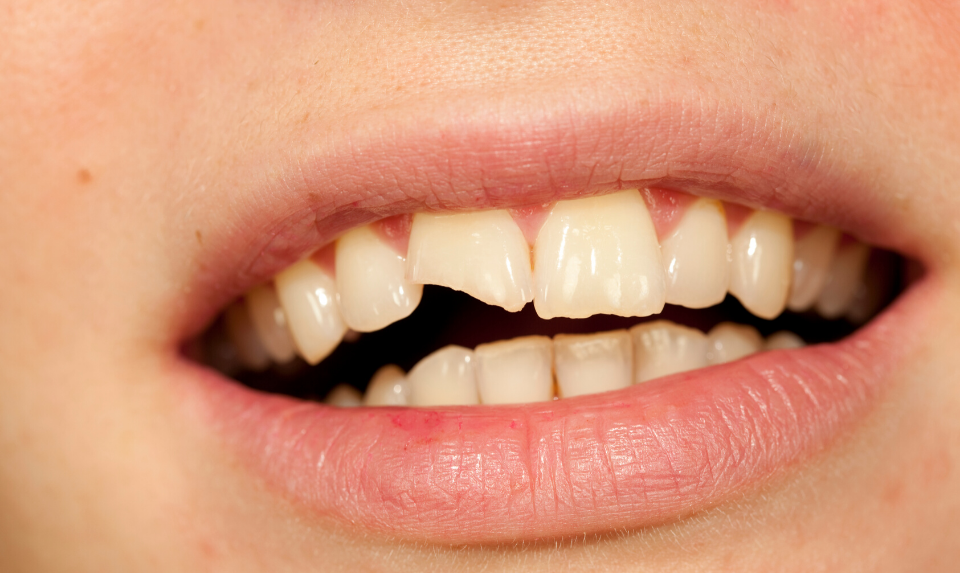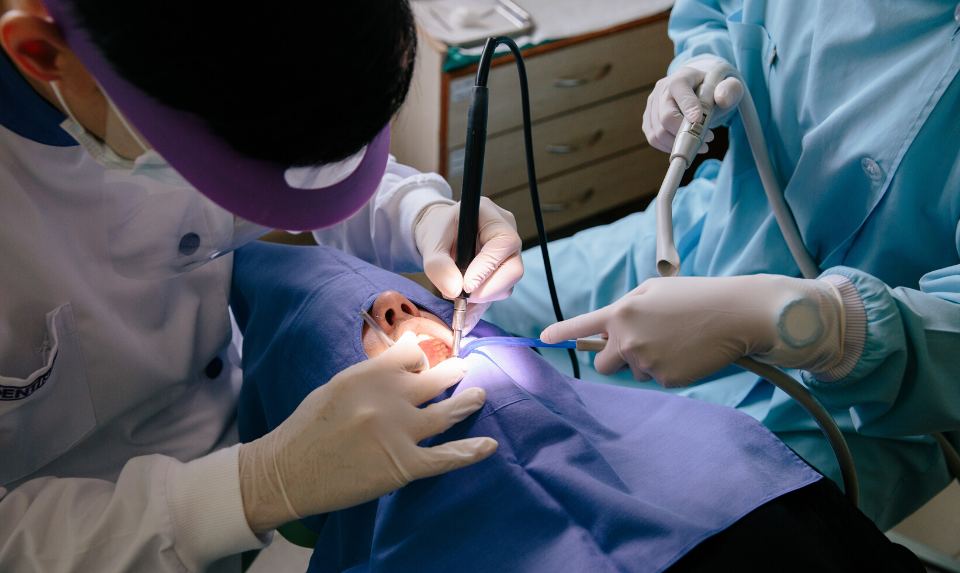Dental bonding is a process where a tooth-colored resin material (a durable plastic material) is set and hardened using a unique light, which eventually “bonds” the material to the tooth to improve or restore a person’s smile.
For What Conditions Is Dental Bonding Considered?
Dental bonding is a choice that can be considered:
- To repair chipped or cracked teeth
- To close spaces between teeth
- To make teeth look last longer
- To improve the appearance of discolored teeth
- To change the shape of teeth
- To fix decayed teeth (composite resins are used to fill cavities)
- As a cosmetic alternative to amalgam fillings
- To care for a portion of the tooth’s root that has been bare when gums recede

What’s the Process of Having A Tooth Bonded?
Preparation
Little preparation is needed for dental bonding. Anesthesia is not needed, but if the bonding is being used to block a decayed tooth, the tooth requires to be drilled to modify its shape, or the chip is close to a nerve. Your dentist will use a shade sample to choose a composite resin colour that will directly match the colour of your tooth.
The Bonding Process
After that, the exterior of the tooth will be roughened, and a conditioning liquid applied. These actions aid the bonding material hold to the tooth. The tooth-colored, putty-like resin is then smoothed, molded, applied, and to the preferred shape. A bright, frequently blue, light, or laser is then used to solidify the material. After the material is solidified, your dentist will further shape and trim it, and polish it to equal the shine of the teeth.
Time-to-Completion
Dental bonding may be completed about 30 to 60 minutes per tooth to finish.
The Advantages and Disadvantages of Dental Bonding
Advantage
Dental bonding is among the least costly and easiest of cosmetic dental actions. Unlike crowns and veneers, which are tailored tooth coverings that must be created in a lab, bonding can be usually done in a single office visit, except numerous teeth are concerned.
One more advantage, compared with crowns and veneers, is that the least amount of tooth enamel is detached. Also, except if dental bonding is being done to fill a cavity, anesthesia is usually not necessary.
Disadvantages
Even though the material used in dental bonding is fairly stain resistant, it does not oppose stains as well as crowns. One more disadvantage is that the bonding materials do not last as long nor are as tough as other restorative actions, such as fillings, veneers, or crowns. In addition, bonding materials can break off and the chipped tooth.
Because of some of the boundaries of dental bonding, several dentists view it as best suited for minor cosmetic changes, for momentary correction of cosmetic defects, and for improvement in areas with very low bite pressure. Ask your dentist about the best cosmetic approach to your problem.
Do Bonded Teeth Require Special Care?
Bonded teeth do not need special care. Just follow good oral hygiene practices. Floss at least once a day, brush teeth at least twice a day, rinse with an antiseptic mouthwash once or twice a day, Consult your dentist for habitual professional cleanings and check-ups.
Because bonding material may chip, it is essential to evade such habits as biting ice, chewing on pens, fingernails, or other hard food objects; or using your bonded teeth as an opener. If you observe any sharp edges on a bonded tooth or if your tooth feels strange when you bite down, call your dentist.
How Long Does Dental Bonding Material Last?
The duration of bonding materials for the teeth depends on how much bonding was completed and your oral routine. Usually, however, bonding material lasts from three years up to around ten years prior to being retouched or changed.
How Much Does Dental Bonding Cost?

Costs of dental bonding may be different depending on where you reside. Usually, bonding can vary in cost from $100 to $400 per tooth. Verify with your dental insurance group to know if the cost of bonding might be completely or partially covered.

I am a Family Doctor in Atlanta, GA. Married to the beautiful, Susan with two sweet girls. I enjoy golfing on occasion.
You might be wondering what my domain name has to do with my profession. About three years ago, my uncle, who has many domains, created this one to help others buy a knock-off brand of sports sunglasses.
I mentioned to him that I have been domain searching and was in need of finding a way to bring information to the public regarding my family medicine practice. He was kind enough to give me the rights to own this one. I realized that creating this site benefits society in various ways by showing the many options available to relieve family stress and worry via modern medicine.
